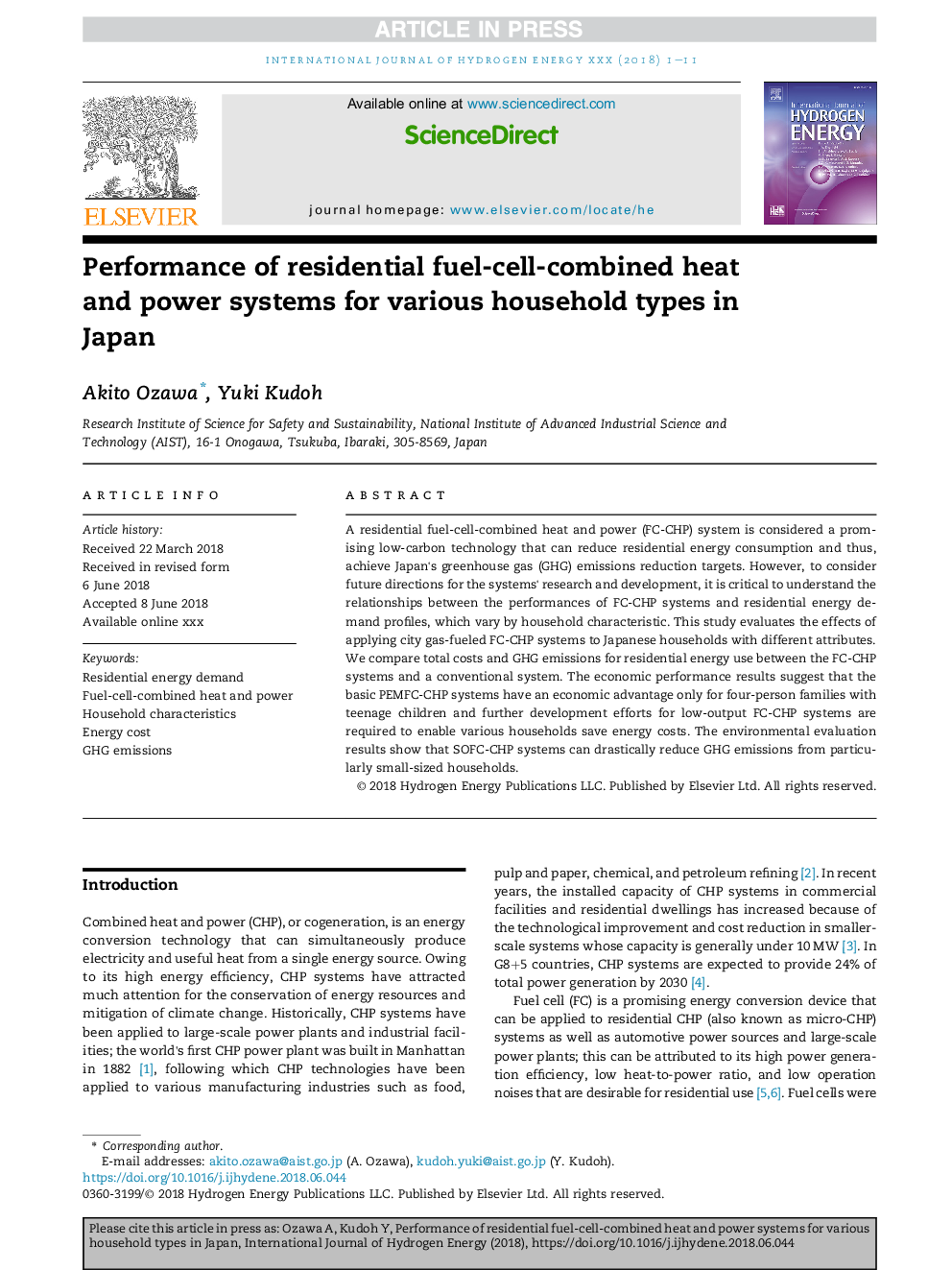| Article ID | Journal | Published Year | Pages | File Type |
|---|---|---|---|---|
| 7705345 | International Journal of Hydrogen Energy | 2018 | 11 Pages |
Abstract
A residential fuel-cell-combined heat and power (FC-CHP) system is considered a promising low-carbon technology that can reduce residential energy consumption and thus, achieve Japan's greenhouse gas (GHG) emissions reduction targets. However, to consider future directions for the systems' research and development, it is critical to understand the relationships between the performances of FC-CHP systems and residential energy demand profiles, which vary by household characteristic. This study evaluates the effects of applying city gas-fueled FC-CHP systems to Japanese households with different attributes. We compare total costs and GHG emissions for residential energy use between the FC-CHP systems and a conventional system. The economic performance results suggest that the basic PEMFC-CHP systems have an economic advantage only for four-person families with teenage children and further development efforts for low-output FC-CHP systems are required to enable various households save energy costs. The environmental evaluation results show that SOFC-CHP systems can drastically reduce GHG emissions from particularly small-sized households.
Related Topics
Physical Sciences and Engineering
Chemistry
Electrochemistry
Authors
Akito Ozawa, Yuki Kudoh,
